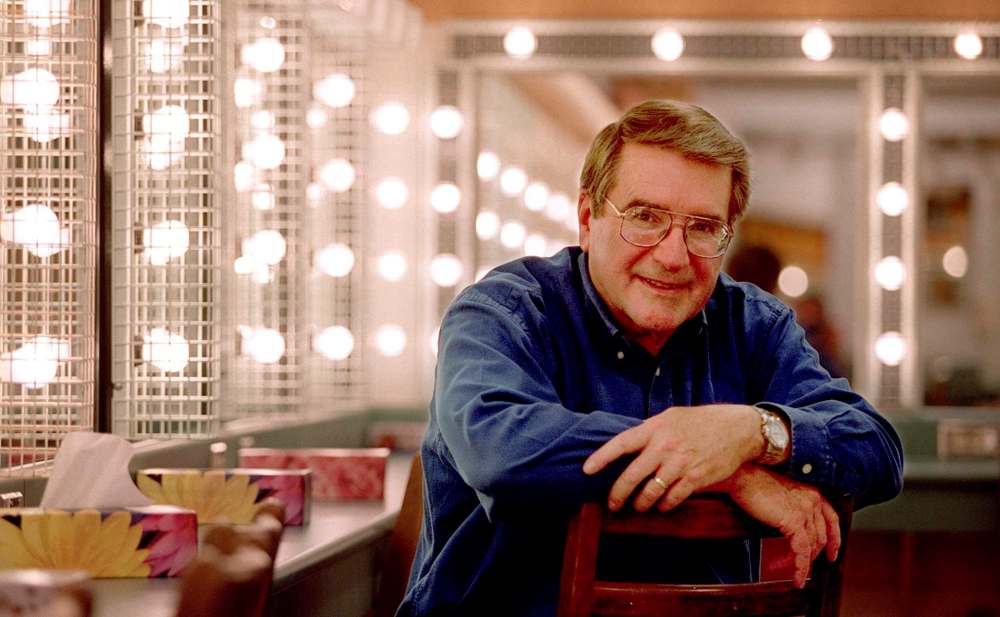Godfather of theatre a ‘visionary’
Scholar, educator put U of W program on the map
Advertisement
Read this article for free:
or
Already have an account? Log in here »
To continue reading, please subscribe:
Monthly Digital Subscription
$0 for the first 4 weeks*
- Enjoy unlimited reading on winnipegfreepress.com
- Read the E-Edition, our digital replica newspaper
- Access News Break, our award-winning app
- Play interactive puzzles
*No charge for 4 weeks then price increases to the regular rate of $19.00 plus GST every four weeks. Offer available to new and qualified returning subscribers only. Cancel any time.
Monthly Digital Subscription
$4.75/week*
- Enjoy unlimited reading on winnipegfreepress.com
- Read the E-Edition, our digital replica newspaper
- Access News Break, our award-winning app
- Play interactive puzzles
*Billed as $19 plus GST every four weeks. Cancel any time.
To continue reading, please subscribe:
Add Free Press access to your Brandon Sun subscription for only an additional
$1 for the first 4 weeks*
*Your next subscription payment will increase by $1.00 and you will be charged $16.99 plus GST for four weeks. After four weeks, your payment will increase to $23.99 plus GST every four weeks.
Read unlimited articles for free today:
or
Already have an account? Log in here »
Hey there, time traveller!
This article was published 20/04/2016 (3503 days ago), so information in it may no longer be current.
Described as “the godfather of Winnipeg theatre,” Reg Skene, a scholar, an educator and a former theatre critic at the Winnipeg Free Press and CBC, died Tuesday at the age of 82.
Skene was remembered as a “visionary” who put the University of Winnipeg’s theatre department on the map, said Tim Babcock, chairman of the U of W’s theatre department.
From 1967, when he was a member of the English department, Skene built the theatre program from a couple of courses to a full-fledged department of theatre and drama by 1982. He retired from the U of W in 2002.

“Winnipeg was known as a centre for performing-arts excellence, with MTC, the ballet and the symphony, but it wasn’t until we established this program that there was a recognized training facility to support those institutions,” Babcock said, attributing that achievement to Skene.
“It was a fact that MTC, Prairie Theatre Exchange, MTYP and the Royal Winnipeg Ballet, they would bring in people from Montreal and Toronto and Vancouver into their entry-level positions backstage until this program was established,” Babcock said. “It took a few years, but once this program was here, that has changed entirely. It’s no longer necessary now to go out of province to work in the province.”
Laurie Lam, a producer at the Royal Manitoba Theatre Centre, points out in the current production of Unnecessary Farce on the mainstage, four actors, the fight director and assistant stage manager all come from the U of W theatre program Skene built.
RMTC artistic director Steven Schipper said Skene was responsible for “a complex web of artistic influence woven into our work.”
Kevin Prokosh, recently retired theatre critic for the Free Press, remembered Skene as a gracious man who made a point of calling him after Prokosh wrote his first theatre review for the paper for the 1991 MTC production of M. Butterfly to compliment him on his work.
Apart from his academic legacy, Skene also left behind a family legacy in drama. Four of his five children followed his footsteps into theatre, education and film, including his son Rick Skene (as well as two of Rick’s sons, Sean and Daniel).
In a 2003 interview with the Free Press, Rick (an actor, teacher and stunt co-ordinator) affectionately recalled his father’s indoctrinating him into theatre from an early age.
“My father didn’t take me to ball games or hockey games,” Rick said. “When I was three, he hauled me to Shakespeare and he talked to me about it on the way home. He always used to discuss theatre with me like I was 40 years old.
“And when he would direct something, because we had five kids in my family, he’d throw me in the car to come to rehearsal. So I watched plays being put together and directed as long as I could remember. To me, it was kind of normal.”
“Reg was larger than life,” Babcock said. “He was a big man physically, and he had big ideas.
“It was hard to get a word in edgewise with him sometimes,” Babcock laughed. “But he had a real influence on the people around him. And his students loved him.”
randall.king@freepress.mb.caTwitter: @FreepKing

In a way, Randall King was born into the entertainment beat.
Our newsroom depends on a growing audience of readers to power our journalism. If you are not a paid reader, please consider becoming a subscriber.
Our newsroom depends on its audience of readers to power our journalism. Thank you for your support.


